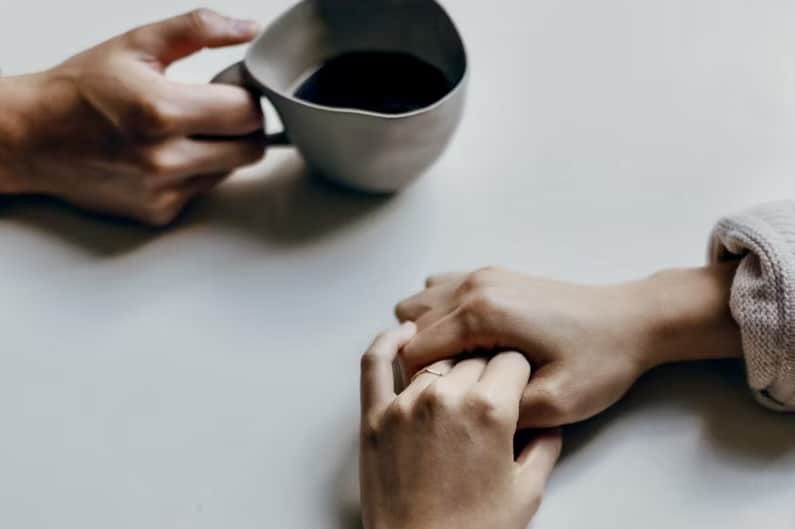Online support accessible today with a licensed therapist for anxiety
Online support accessible today with a licensed therapist for anxiety
Blog Article
Checking Out Various Methods in Therapy for Anxiousness Condition for Long Lasting Modification
When taking on stress and anxiety disorders, it's essential to discover a variety of therapy approaches. Each technique offers unique understandings and tools to assist you manage your signs effectively. You might discover that integrating strategies can generate the very best outcomes. Understanding the nuances of these methods is crucial to fostering lasting modification. What if the appropriate mix could release a new level of psychological well-being for you?
Recognizing Anxiety Problems: A Brief Summary
Stress and anxiety problems, which influence countless individuals worldwide, can greatly impact daily life. You could experience frustrating sensations of fear or stress that appear irrepressible. These feelings can lead to physical signs and symptoms like an auto racing heart, sweating, or also lightheadedness. Typical kinds of anxiousness problems consist of generalized stress and anxiety problem, panic disorder, and social stress and anxiety disorder. Each has distinct indications, but they all share a tendency to interrupt your routine and relationships.Understanding the root triggers of your stress and anxiety is essential. It may originate from genetics, mind chemistry, or life experiences. Acknowledging your triggers can help you manage your reactions better. It is essential to bear in mind that you're not alone in this battle. Lots of people deal with similar challenges, and seeking help is a strong action toward sensation much better. By learning more about anxiousness problems, you're already on the course to understanding and managing your problem better.
Cognitive-Behavioral Therapy: Challenging Negative Idea Patterns
In Cognitive-Behavioral Treatment, you'll start by determining the negative thought activates that add to your anxiety. You'll function on replacing them with more positive choices when you recognize these thoughts. Together, you'll construct reliable coping approaches to assist handle your anxiousness in daily situations.
Recognizing Negative Idea Triggers

When you run into minutes of distress, recognizing the specific triggers behind your unfavorable ideas can be crucial in managing anxiety. Begin by taking note of scenarios that provoke sensations of worry or worry. Is it a crowded room, a future deadline, or a discussion with specific people? Write down these instances in a journal. This will aid you identify patterns in your reasoning. Notification physical experiences that accompany your unfavorable ideas, like a racing heart or tightness in your chest. By determining these triggers, you acquire understanding right into what's sustaining your anxiety. Recognizing these links is the initial step in testing those thoughts and ultimately gaining back control over your psychological responses.
Changing Thoughts With Positives
Challenging negative idea patterns is a necessary action in changing your attitude and decreasing anxiety. You may frequently find yourself entraped in cycles of insecurity or disastrous thinking. As opposed to allowing these ideas determine your sensations, method changing them with realistic choices or positive affirmations. When you believe, "I can not manage this," change it to, "I can handle challenges one action at a time." This easy modification can significantly impact your psychological state. Regularly identifying and responding to these adverse ideas aids develop a much healthier inner discussion. Keep in mind, it takes some time and effort, yet continually exercising this method can result in enduring adjustment, empowering you to face anxiousness with renewed self-confidence and strength.
Structure Coping Techniques With Each Other
Changing unfavorable thoughts is just the start of handling anxiousness properly. To develop enduring modification, you require to develop coping approaches that encourage you. Cognitive-Behavioral Treatment (CBT) helps you identify and test those purposeless idea patterns. Together, you and your therapist can check out how these thoughts impact your feelings and behaviors.Start by establishing sensible strategies, like journaling or mindfulness exercises, that permit you to challenge anxiousness head-on. When you encounter your worries gradually, you'll find out to react in a different way.

Mindfulness and Acceptance-Based Approaches: Cultivating Present-Moment Recognition
As you navigate the complexities of anxiousness, integrating mindfulness and acceptance-based methods can considerably improve your ability to cultivate present-moment awareness. By concentrating on the right here and currently, you'll locate that you can observe your ideas and sensations without judgment (Counseling services for anxiety). This practice helps you recognize your stress and anxiety without really feeling bewildered by it.Engaging in mindfulness exercises, such as deep breathing, body scans, or led meditations, permits you to ground yourself in your present experience. Acceptance-based techniques urge you to embrace your feelings rather than fight against them. They lose their power over you.Incorporating these techniques into your day-to-day routine can transform just how you react to anxiousness when you approve your sensations. You'll create strength and find out to browse stressful circumstances with better ease. Ultimately, cultivating present-moment understanding lays the foundation for long lasting change, empowering you to lead a much more satisfying life
Exposure Therapy: Confronting Concerns Gradually
Exposure treatment helps you confront your concerns in a gradual means, making it much less overwhelming. You'll learn strategies to encounter anxiety-provoking scenarios detailed, while likewise constructing coping methods to handle your reactions. This method encourages you to take control and reduce anxiety with time.
Gradual Direct Exposure Strategies

When dealing with anxiousness, gradually facing your worries can be a powerful means to restore control. This strategy, referred to as gradual exposure, includes slowly subjecting yourself to the scenarios or things that trigger your stress and anxiety. Begin with less daunting scenarios and gradually work your way approximately more challenging ones. As an example, if you're terrified of public speaking, you might begin by talking before a mirror, then progress to sharing thoughts with a friend, and ultimately attend to a little group. Each action aids desensitize you to the fear, building your confidence with time. Remember, it's vital to speed yourself and celebrate little victories as you move via this procedure, reinforcing your capacity to handle stress and anxiety efficiently.
Building Coping Approaches
Structure effective coping strategies is necessary for taking care of anxiety, particularly as you face your anxieties slowly - Counseling services for anxiety. One effective method is exposure therapy, where you start by facing your anxieties in a regulated fashion. Begin with much less daunting scenarios and slowly work your way up to more tough circumstances. This progressive exposure assists desensitize you to stress and anxiety sets off, making them less overwhelming.Incorporate leisure techniques, such as deep breathing or mindfulness, to calm your mind during exposure. Track your progress, celebrating tiny victories along the method to improve your confidence. Remember, it's alright to take your time; the objective isn't excellence however consistent improvement. By building these approaches, you'll encourage yourself to navigate stress and anxiety and welcome life extra totally
Psychodynamic Treatment: Uncovering Source of Anxiousness
Psychodynamic therapy explores the subconscious mind, revealing the origin of your anxiousness. By examining your thoughts, sensations, and past experiences, this technique helps you uncover underlying conflicts and unresolved concerns that may contribute to your current anxiousness. You'll work with a therapist to check out youth experiences, relationships, and psychological patterns that form your reactions today.As you get insight into these deeper layers of your mind, you'll begin to acknowledge exactly how previous occasions influence your existing behavior. This understanding can lead to catharsis, permitting you to process feelings you could have suppressed.Through the restorative partnership, you can also recognize defense reaction that may have created in time, providing a more clear path to alter. Ultimately, psychodynamic treatment outfits you with the devices to resolve your stress and anxiety at its core, advertising long-term makeover in your psychological wellness.
Alternative and integrative Approaches: Incorporating Methods for Greater Efficiency
Incorporating various healing strategies can enhance your trip toward taking care of stress and anxiety much more successfully. By integrating aspects from cognitive-behavioral therapy, mindfulness techniques, and all natural strategies, you can create a personalized method that addresses your unique demands. You might use cognitive-behavioral strategies to test negative idea patterns while integrating mindfulness exercises to ground yourself in the existing moment.Additionally, checking out alternative practices such as yoga or reflection can advertise relaxation and minimize anxiety signs. This blend allows you to establish higher self-awareness and resilience.Experimenting with these varied techniques can assist you find what reverberates most with you. Bear in mind, it's about locating a synergy that functions, instead than staying with a single technique. This integrative technique not just provides immediate alleviation yet also promotes lasting skills for handling anxiety, encouraging you to reclaim control over your life.
The Duty of Support Solutions: Structure Resilience With Connection
While it may appear that managing anxiousness is a solitary trip, having a solid assistance system can play a crucial role in your durability. Bordering yourself with compassionate pals, household, or support groups develops a secure area where you can openly share your sensations and experiences. When you get in touch counselling for anxiety with others, you advise on your own that you're not the only one in this struggle.These relationships provide encouragement and can provide sensible coping strategies that have helped others. It's additionally a chance to acquire perspective; good friends can assist you see circumstances differently, minimizing sensations of isolation.Moreover, psychological support fosters a sense of belonging, which can considerably ease stress and anxiety signs. By leaning on your support group, you can construct resilience and deal with difficulties better. Bear in mind, getting to out for assistance signifies toughness, and it can make all the distinction in your trip toward handling anxiousness.
Often Asked Concerns
What Are the Usual Symptoms of Anxiety Problems?
You may experience uneasyness, exhaustion, trouble focusing, irritability, muscle mass stress, and rest disruptions. Physical signs can include quick heart beat, sweating, and trembling. Recognizing these indicators early can assist you seek ideal assistance and treatment.
The Length Of Time Does Treatment Normally Last for Anxiety Conditions?
Therapy for anxiety problems commonly lasts anywhere from a couple of weeks to numerous months. It really relies on your specific requirements, development, and the strategies your therapist makes use of to aid you handle your stress and anxiety successfully.
Can Medication Be Utilized Together With Therapy for Anxiety?
Yes, medicine can certainly be utilized together with treatment for anxiety. Incorporating both strategies typically enhances therapy effectiveness, assisting you take care of signs and symptoms while exploring underlying problems via therapy (Counseling services for anxiety). Constantly consult your doctor for tailored recommendations
Exist Self-Help Methods for Managing Anxiousness?
Yes, there are numerous self-help strategies for managing stress and anxiety. You can practice mindfulness, participate in routine workout, keep a well balanced diet, develop a regular, and utilize deep breathing methods to aid reduce anxiety symptoms successfully.
How Do I Know if I Need Specialist Aid for Anxiety?

Report this page